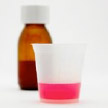How Do Antibiotics Work?
 Antibacterials aren’t the answer for every infection your child gets. In fact, there are 2 major types of germs that cause most infections, viruses and bacteria, and antibacterials are useful only against bacteria.
Antibacterials aren’t the answer for every infection your child gets. In fact, there are 2 major types of germs that cause most infections, viruses and bacteria, and antibacterials are useful only against bacteria.
- Bacteria are one-celled organisms that are just a few thousandths of a millimeter in size. They live on our skin, in our digestive system, and in our mouths and throats. In fact, there are one hundred thousand billion bacteria living and thriving on or inside of us. Although most are either harmless or actually serve a positive role in the body (eg, helping to break down the nutrients in our diet), some are dangerous and cause illnesses. They’re responsible for many childhood diseases, including most ear infections, strep throat, some sinus infections, and urinary tract infections.
- Viruses are even smaller than bacteria. The poliovirus, for example, is only 16 millionths of a millimeter in diameter. Despite their size, viruses can cause mild and serious diseases when they enter healthy cells in the body. They’re responsible for the common cold, the flu, and most sore throats and coughs. They also cause smallpox, the measles, the mumps, hepatitis, and acquired immunodeficiency syndrome (AIDS). As powerful as antibacterials are when used in the right situations, they cannot kill viruses and do not work against viral infections. If they’re given to your child when she has a viral infection, they can not only cause side effects, but also add to the serious problem of antibiotic resistance. There are drugs called antivirals that have been developed to fight viruses.
For children, antibiotics are available in a number of forms, including tablets, capsules, liquids, and chewables. Some antibiotics come as ointments and others come as drops (eg, for ear infections).When your pediatrician prescribes an antibiotic, your pediatrician will choose the best one for the specific germ that is making your child sick.
The Activity of Antibacterials
Antibacterials fight infectious bacteria in the body. They attack the disease process by destroying the structure of the bacteria or their ability to divide or reproduce. Scientists often categorize antibacterials in the following way:
- Some antibacterials (eg, penicillin, cephalosporin) kill bacteria outright and are called bactericidal. They may directly attack the bacterial cell wall, which injures the cell. The bacteria can no longer attack the body, preventing these cells from doing any further damage within the body.
- Other antibacterials (eg, tetracycline, erythromycin) block the bacteria’s growth or reproduction. Often called bacteriostatic antibiotics, they prevent nutrients from reaching the bacteria, which stops them from dividing and multiplying. Because millions of bacteria are needed to continue the disease process, these antibiotics can stop the infection and give the body’s own immune system time to attack.
Some antibacterials are called broad spectrum and can fight many types of germs in the body, while others are more specific. If your pediatrician uses blood, urine, or other tests that identify the specific bacteria causing your child’s infection, your pediatrician can prescribe an antibacterial that can target those germs.
Remember, if your child has a cold, antibiotics aren’t the answer. It’s sometimes difficult for parents to determine if their child’s illness is caused by viruses or bacteria. For this reason, never try to diagnose and treat your youngster’s illness yourself. Contact or visit your pediatrician’s office.
Side Effects of Antibiotics
As powerful and useful as antibiotics can be, they may produce side effects in some people. In children, they can cause stomach discomfort, loose stools, or nausea. Some youngsters have an allergic reaction to penicillin and other antibiotics, producing symptoms such as skin rashes or breathing difficulties. If these allergic symptoms become severe, causing labored breathing, difficulty swallowing because of a tight throat, or wheezing, call your pediatrician and go to the emergency department right away.
Are Antibiotics Ever Used to Prevent Illnesses?
While antimicrobial drugs are mostly used to treat infections that your infant or child may develop, they are sometimes prescribed to prevent an illness from ever occurring. For example, children who have frequent urinary tract infections are sometimes given antibacterials to reduce the likelihood that they’ll recur. Medicines can kill the bacteria before they have a chance to cause an infection.
Here are other circumstances in which prophylactic (preventive) antibacterial drugs may be prescribed for children.
- Your pediatrician may prescribe penicillin for your child for prevention of acute rheumatic fever.
- Sometimes, a child who has been bitten by a dog, another animal, or even another person will be given medicines to prevent an infection from developing.
- When youngsters are hospitalized for a surgical procedure, they may be given medicines before their operation to prevent an infection from developing at the site of the surgical incision. Typically, these drugs are given to children no more than 30 minutes before the operation. A single dose is often all that’s needed.
If your pediatrician believes that your child can benefit from taking medicines as a preventive measure, your pediatrician will choose them carefully and prescribe them for the shortest possible period. This strategy will reduce the chances that use of these drugs will contribute to the problem of antimicrobial resistance.
Source: Immunizations & Infectious Diseases: An Informed Parent's Guide (Copyright © 2006 American Academy of Pediatrics)
The information contained on this Web site should not be used as a substitute for the medical care and advice of your pediatrician. There may be variations in treatment that your pediatrician may recommend based on individual facts and circumstances.











